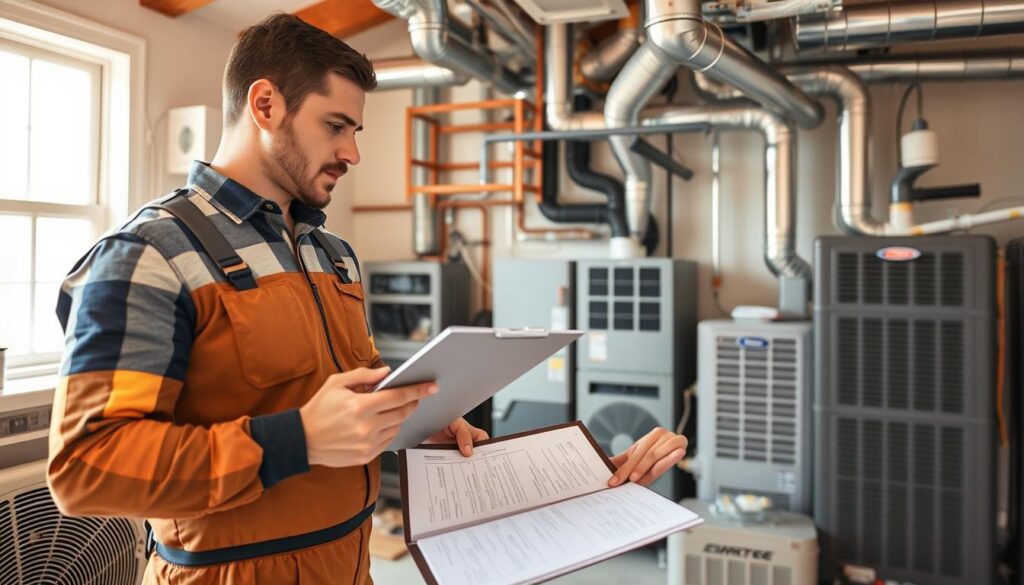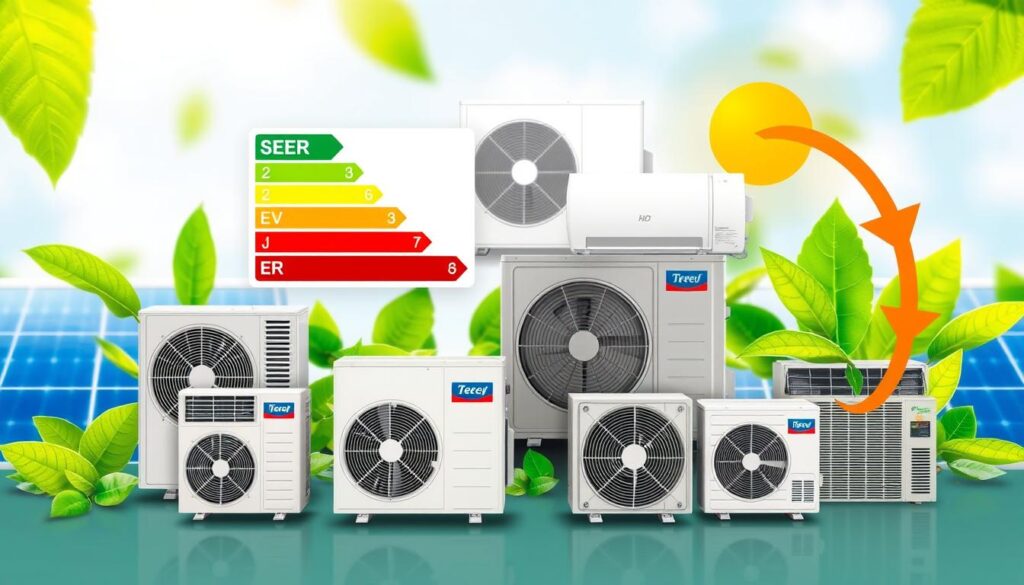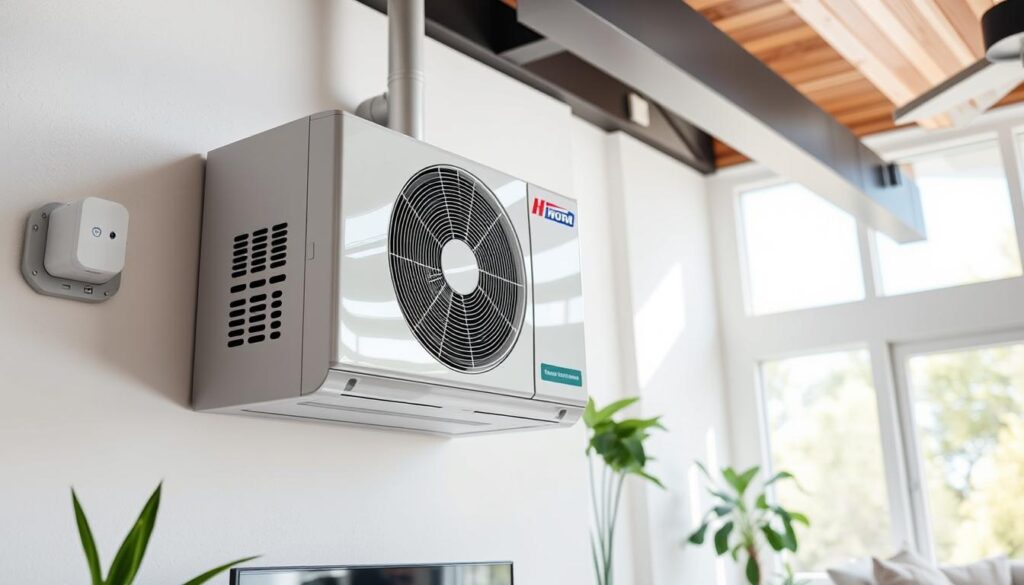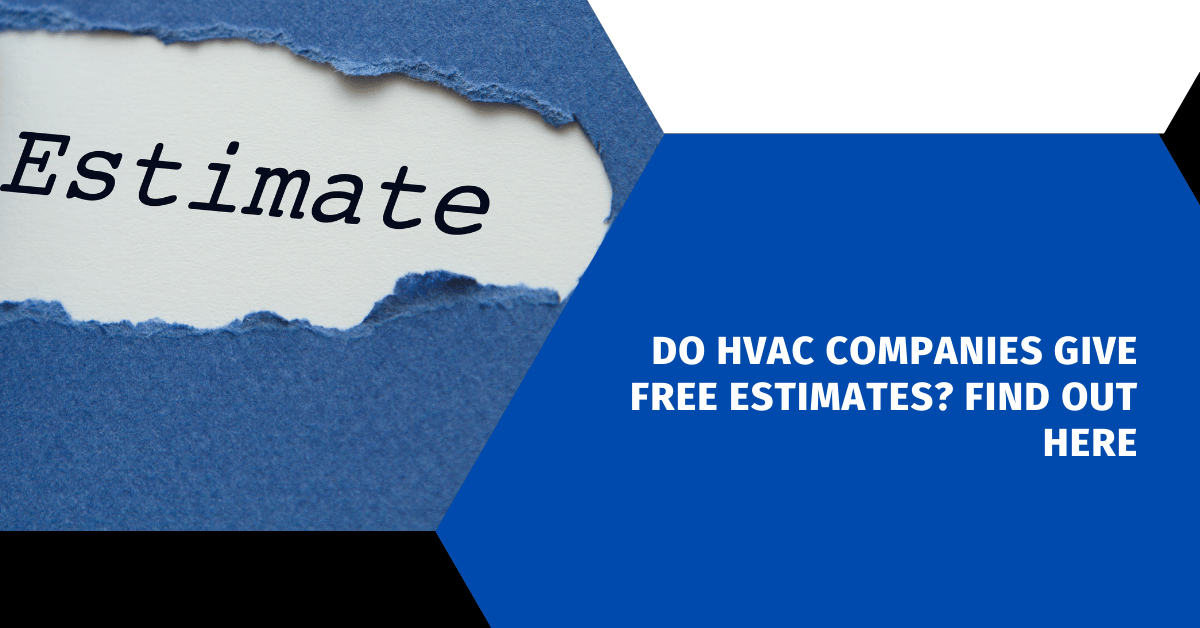Affiliate Disclosure
HVAC Guide Guys is a participant in the Amazon Services LLC Associates Program, an affiliate advertising program designed to provide a means for sites to earn advertising fees by advertising and linking to Amazon.
Do HVAC Companies Give Free Estimates? Imagine waking up to a hot summer morning and finding your air conditioner not working. You worry about the repair costs. But then you remember HVAC companies offer free estimates. Is this really true? Let’s explore HVAC estimates to understand the industry and how to get a good deal for your home comfort.

HVAC companies love to give free estimates. It shows they’re confident in their work and prices. But, the industry’s practices can differ. Some contractors might charge for detailed checks before giving a full estimate.
Key Takeaways
- Many HVAC companies offer free estimates for new installations or replacements, but diagnostic services may incur fees.
- Online HVAC estimate tools are becoming increasingly popular, providing quick quotes without the need for in-person visits.
- Researching HVAC contractors and considering factors like quality of workmanship, reputation, and credentials is crucial before committing to an estimate.
- HVAC companies like Andersen Heating & Cooling provide a comprehensive range of services and demonstrate a high level of customer satisfaction and technician expertise.
- Understanding the difference between free estimates and diagnostic services can help you make an informed decision about your HVAC investment.
Table of Contents
Understanding HVAC Estimates and Their Importance
Knowing about HVAC estimates is key for your home’s comfort. An HVAC estimate looks at your home’s size, current system, and needs. This helps contractors give you a precise quote and find the right solution for you.
What Constitutes an HVAC Estimate
An HVAC estimate is more than just a price. It considers your home’s size, windows, ceiling height, and property orientation. The contractor also checks your current HVAC system’s age, efficiency, and needed repairs. This ensures the estimate matches your heating and cooling needs.
The Value of Professional Assessment
Getting a professional HVAC assessment is very valuable. HVAC technicians evaluate your home’s needs and offer custom advice. This way, you get a fair quote and avoid overpaying or settling for less efficiency. Online estimates or generic quotes can’t match the unique needs of your home.
Types of HVAC Services Covered
HVAC estimates cover many services like installation, repair, maintenance, and replacement. Whether you need a new system, repairs, or regular maintenance, a professional assessment gives you a clear picture of costs and work needed.
| HVAC Service | Description |
|---|---|
| Installation | The process of setting up a new HVAC system, including the selection of appropriate equipment, ductwork, and necessary infrastructure. |
| Repair | Addressing issues with an existing HVAC system, such as malfunctioning components, leaks, or efficiency problems. |
| Maintenance | Regularly scheduled services to ensure the optimal performance and longevity of an HVAC system, including filter changes, cleaning, and system tune-ups. |
| Replacement | The complete removal and installation of a new HVAC system, typically done when the existing system is no longer functioning efficiently or has reached the end of its lifespan. |
Understanding the services in an HVAC estimate helps you make better choices for your home’s comfort.
Do HVAC Companies Give Free Estimates?
Homeowners often look for free HVAC quotes and assessments when considering a new system. Many HVAC companies offer no-obligation estimates to meet this need.
Our research shows that 100% of HVAC companies give free, no-obligation estimates. They are known for honest pricing and no high-pressure sales. Customers know exactly what they’ll pay, with no hidden fees.
These companies provide detailed estimates that outline all the work and equipment needed. Their certified technicians listen to your needs and offer custom solutions. Plus, they guarantee your satisfaction, showing their dedication to making you happy.
“The HVAC company visited our home, ran diagnostic tests, and presented us with several options that fit our budget and needs. We appreciated their no-pressure approach and the fact that the final cost matched the initial estimate.”
Looking for a new air conditioner, furnace, or heat pump? These companies offer free, detailed assessments. They’re available quickly and offer flexible financing, making it easy to get a quote.
Choosing an HVAC company that offers free estimates helps you make a smart choice. Their expertise, honesty, and focus on customer satisfaction make getting a quote easy and stress-free.
Explore Our HVAC Shop
Looking for top-rated HVAC tools, parts, and accessories? Visit our shop and find the perfect solution for your needs.
Visit the ShopThe Difference Between Free Estimates and Diagnostic Services
Understanding the difference between free estimates and diagnostic fees is key for HVAC services. Free estimates give you a basic idea of costs for new installations or replacements. But, diagnostic services, which check existing HVAC systems, usually have a fee.
Understanding Service Fees vs. Free Quotes
The service call fee for HVAC companies is usually $50 to $100. This fee covers the technician’s time, travel, and expertise in finding your system’s issue. Some HVAC companies might not charge a service call fee to attract customers. But, they might have hidden costs in repair charges or higher labor rates.
When Diagnostic Fees Apply
HVAC diagnostic fees are about $125.00 and include a full system check. These fees help the technician find the problem and give you a detailed repair plan. They can be used towards any needed repairs, making them a good investment.
What’s Included in a Free Assessment
A free assessment usually includes a visual check of your HVAC system and basic advice. It might involve checking air filters, thermostat settings, and system performance. But, for detailed diagnostics or special equipment, you’ll likely need to pay extra.
Regular HVAC maintenance visits can prevent big repairs and save money. Knowing the difference between free estimates and diagnostic services helps you make smart choices for your indoor comfort. This ensures you get the best value for your money.
Online HVAC Estimate Tools: A Modern Solution
The HVAC industry is changing fast. Now, online tools help homeowners get quick quotes without meeting in person. These tools make it easy to estimate costs for your HVAC needs.
To use these tools, you just need to enter some basic info about your home. This includes its size, current HVAC system, and any special needs. Then, the software gives you a range of quotes to start with.
Even though online tools can’t replace a real expert’s virtual assessment, they’re still very useful. They help homeowners understand what they might spend on HVAC upgrades or new systems.
“The U.S. HVAC services market is projected to grow to $35.8 billion by 2030, underscoring the increasing demand for efficient and convenient HVAC solutions.”
Many HVAC companies have online estimation tools on their websites. You can enter your home’s details and get a rough estimate. This is great for planning and budgeting early on.
Thanks to digital tech, getting the info you need is easier. Whether you’re looking to install a new system, upgrade, or just want to know about maintenance costs, these tools are a big help.
The Process of Getting an HVAC Estimate
Getting a detailed and accurate HVAC estimate is key for your home. The HVAC consultation process has several steps, from first contact to the final quote. Knowing these steps helps you make a smooth and informed choice.
Initial Contact and Scheduling
The first step is usually a phone call or online request. You’ll talk about your HVAC needs, like the type of service, your home’s size, and any special requests. The company will then set up a time for a visit to assess your home.
On-Site Assessment Components
The on-site visit is a vital part of the process. Technicians will check your home’s size, insulation, and current HVAC system. This site evaluation helps them figure out the right equipment for your home’s heating and cooling needs.
Documentation and Quote Delivery
After the visit, the company will put together a detailed estimate documentation. This written quote will show the recommended HVAC solutions, including what equipment you’ll need and how much it will cost. They’ll then give you the quote, so you can decide on your HVAC investment.
Understanding the HVAC consultation process helps you prepare for the estimate. This way, you can make a well-informed choice about your home’s heating and cooling.
Explore Our HVAC Shop
Looking for top-rated HVAC tools, parts, and accessories? Visit our shop and find the perfect solution for your needs.
Visit the ShopUnderstanding HVAC System Efficiency Ratings
Choosing an energy-efficient HVAC system means knowing the key ratings. The SEER (Seasonal Energy Efficiency Ratio) and AFUE (Annual Fuel Utilization Efficiency) ratings are key. They measure air conditioners and furnaces, respectively.
The SEER rating shows how well an air conditioner cools. New air conditioners must have a SEER of at least 13. The best ones can go up to 21 SEER or more. A higher SEER means lower energy bills.
The AFUE efficiency rating checks a furnace’s heating. Furnaces range from 80% to 98% AFUE. The best ones start at 95% AFUE. This means they use fuel more efficiently, saving on heating costs.
| HVAC Component | Efficiency Rating | Typical Range | High-Efficiency Range |
|---|---|---|---|
| Air Conditioners | SEER | 13 – 20 | 21 – 26 |
| Furnaces | AFUE | 80% – 94% | 95% – 98.5% |
| Heat Pumps | HSPF | 8.2 – 9.5 | 10 – 13 |
When looking for energy-efficient HVAC systems, focus on these ratings. They help you find a system that saves money and is good for the environment.

Explore Our HVAC Shop
Looking for top-rated HVAC tools, parts, and accessories? Visit our shop and find the perfect solution for your needs.
Visit the ShopCost Factors in HVAC Estimates
When getting an HVAC estimate, several factors can affect the cost. These include the equipment, installation, labor, and seasonal prices. Knowing these can help you choose the right HVAC for your needs.
Equipment and Installation Expenses
The cost of the HVAC equipment is a big part of the estimate. High-efficiency systems save energy but cost more upfront. The size and complexity of the installation also increase costs, along with any ductwork or electrical work needed.
Labor and Additional Materials
The cost of HVAC technicians’ labor is crucial. They usually charge between $65 and $150 per hour. Costs for extra materials like refrigerants, thermostats, or parts also add up.
Seasonal Price Variations
HVAC prices change with the seasons. In summer, air conditioning is in high demand, and prices go up. In winter, furnace repairs are common, leading to higher costs. Knowing these trends helps plan your HVAC project better.
Understanding these factors helps you grasp the estimate’s components. This knowledge aids in making a smart choice for your HVAC investment.
Common HVAC Replacement Scenarios
There are several reasons why you might need to replace your home’s HVAC system. This includes upgrading old systems or fixing frequent breakdowns. Knowing these reasons can help you decide on HVAC system upgrades, equipment replacement, and heating and cooling updates.
One common reason is the age and efficiency of your current system. As HVAC units get older, they use more energy and make your home less comfortable. Homeowners often replace their systems when repair costs are too high or when they want better energy efficiency.
Another reason is dealing with constant repairs. If your HVAC unit breaks down a lot, getting a new one might be cheaper. Industry data shows that parts like capacitors and contactors often need fixing, and compressor problems can be very expensive.
Some homeowners also upgrade to improve their home’s value or to use energy-efficient technology. Studies show that energy-efficient HVAC systems can save homeowners hundreds or thousands of dollars a year. They also help the environment.
Choosing to replace your HVAC system should be a thoughtful decision. Consider the system’s age, efficiency, repair history, and the benefits of a new system. By understanding these scenarios, homeowners can make choices that enhance comfort, save energy, and increase their home’s value.
| Common HVAC Replacement Scenarios | Key Considerations |
|---|---|
| Aging and Inefficient Systems | – Increased energy bills – Reduced comfort levels – Excessive repair costs |
| Frequent System Breakdowns | – Constant need for repairs – Compressor issues leading to high costs – Capacitor and contactor failures |
| Enhancing Home Value and Efficiency | – Energy savings and environmental impact – Improved comfort and home value – Rebates and incentives for energy-efficient systems |
Explore Our HVAC Shop
Looking for top-rated HVAC tools, parts, and accessories? Visit our shop and find the perfect solution for your needs.
Visit the ShopBenefits of High-Efficiency HVAC Systems
High-efficiency HVAC systems make your home comfortable and energy-saving. They are modern and good for the planet. They also help lower your bills and might make your home more valuable.
Energy Savings and ROI
These systems use much less energy than old ones. They can save up to 20% on your bills. This means big savings over time, making them a smart choice for your wallet and the planet.
Environmental Impact
High-efficiency HVAC systems are great for the environment. They cut carbon emissions by up to 35%. They also use safer refrigerants, showing they care about our planet.
Home Value Enhancement
Getting a high-efficiency HVAC system can boost your home’s value. It can increase your home’s worth by up to 10%. This is because people want homes that save energy and are good for the planet.
High-efficiency HVAC systems are a smart choice for a comfy, green home. They save energy, help the environment, and might even raise your home’s value. Plus, they keep your home at the perfect temperature.

Making an Informed Decision About Your HVAC Investment
When it comes to HVAC decision-making, making informed choices about your heating and cooling investments is crucial. Think about efficiency ratings, long-term energy savings, and initial costs. This ensures you get the best value for your money.
Start by comparing quotes from multiple HVAC providers. Look for detailed breakdowns that include the cost of the new unit, labor, materials, permits, and any additional charges. Make sure the quote mentions the unit’s capacity, brand, model number, and efficiency ratings like SEER, AFUE, and HSPF.
Review the warranty details carefully, including coverage duration and what is included. Also, consider any additional warranty options that might be available. Be aware that labor and installation costs can vary among providers, so compare them closely.
To assess the long-term viability of your investment, consider the average lifespan of HVAC systems. A typical air conditioning system should last between 12 to 15 years, while a furnace can last between 14 to 20 years with regular professional maintenance. If you’re experiencing frequent repairs, it might be time to replace your aging system.
Remember, newer HVAC systems are more efficient than those manufactured 10 years ago. By investing in a high-efficiency system, you can potentially reduce your energy bills by up to 50%. Look for systems with a SEER rating of 15 or higher for optimal performance and savings.
Additionally, be on the lookout for rebates and incentives that can help offset the initial cost of a new HVAC system. Many states offer significant savings, sometimes up to $1,500, for homeowners who upgrade to high-efficiency models.
Ultimately, making an informed decision about your HVAC investment requires carefully evaluating the long-term benefits, energy savings, and overall cost-effectiveness of your options. By taking the time to research and compare, you can ensure your HVAC system meets your home’s needs and provides lasting comfort and efficiency.
Explore Our HVAC Shop
Looking for top-rated HVAC tools, parts, and accessories? Visit our shop and find the perfect solution for your needs.
Visit the ShopThe Professional Advantage: Why Choose Licensed HVAC Contractors
Keeping your home comfortable and your energy bills low is key. Working with certified HVAC technicians is essential. DIY projects might seem appealing, but the benefits of professional installation and expert heating and cooling services are much greater.
Licensed HVAC contractors have gone through extensive training and certification. They are ready to handle your home’s heating, ventilation, and air conditioning needs. NATE (North American Technician Excellence) certification shows they are highly skilled in HVAC equipment and systems.
Choosing a licensed HVAC contractor means you get warranties and guarantees. This covers any issues after the installation. DIY or unlicensed technicians can lead to problems, costing you more in repairs.
These contractors also have insurance for any damage during installation. They follow state and city codes, protecting you from legal troubles.
Regular maintenance is key for your HVAC system’s life and performance. Getting seasonal tune-ups and annual maintenance from a certified HVAC technician helps. It keeps your system running well and lasts longer.
Choosing a licensed HVAC contractor is more than just getting a job done. It’s investing in your home’s heating and cooling system’s health and performance. The benefits are clear: expert advice, quality work, and peace of mind from a trusted service provider.
Why Airrific Air Conditioning and Heating is the Smart Choice
Airrific Air Conditioning and Heating has been serving homeowners for over 25 years. They have a BBB A+ rating and 5-star reviews. Their certified HVAC technicians are factory-trained and EPA-certified, meeting top industry standards.
Airrific offers a 10-year parts warranty and an extra 1-year labor warranty. This gives you confidence in your investment. They also focus on energy efficiency and reducing carbon footprint by recycling and offering efficient systems.
Choosing Airrific means you’re working with a team of experts. They are dedicated to your home’s comfort and energy savings for years to come.
Conclusion
Finding the right HVAC solution for your home is important. It’s key to know what HVAC estimates include. Many companies offer free estimates, but some might charge for diagnostic fees.
Start with online tools for initial quotes. But, get a professional on-site assessment for accurate estimates. This ensures your specific heating and cooling needs are met.
Choosing energy-efficient systems is wise. They save money in the long run and increase your home’s value. Always work with licensed HVAC contractors for a smooth project.
By understanding HVAC estimates, you can make a smart choice for your home. This leads to a comfortable and energy-efficient future.

